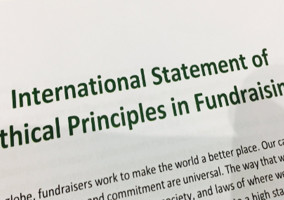The Charity Commission has responded to NCVO’s Draft Code of Ethics, welcoming the code but saying that its scope and focus need to be more explicitly defined.
NCVO published a draft code of ethics for the sector earlier this year, which recommends that charities operate with the “presumption of openness”.
A review panel, led by Dame Mary Marsh, was set up as part of a programme of work agreed by charities, umbrella bodies, the Charity Commission and the government in the wake of the revelations about safeguarding failures earlier this year,
In a statement the Charity Commission said that “ensuring that charities live up to their purpose and the public’s high expectations is about more than compliance with minimum legal requirements”.
It said changes need to be “rooted in organisational culture and what is considered acceptable in terms of individual attitudes and behaviour”.
It said it welcomed the statement that “all charities should proactively champion ethical behaviour and reflect their charitable ethos in every activity they undertake, going beyond legal and regulatory requirements.”
Voluntary code promotes higher standards
The Commission added that voluntary codes set by the sector should promote higher standards than regulators can expect or require.
However, the regulator said that the scope and focus of the code needs to be “more explicitly defined”.
If the code is “intended to apply to a very broad range of ethical issues" than "some themes may need to be drawn out more explicitly,” it said.
It gave the example of where a section on integrity touches on resources, and said: “If it is intended to encompass social and ethical investment, it would benefit from clearer statements to that effect.
“We would also welcome stronger statements about moral leadership, and the importance of a proactive approach to inclusion. Risk and risk appetite may also need to be considered.”
Sufficiently tested?
The Commission also questioned whether NCVO was satisfied that its draft code "has been sufficiently tested in terms of ease of practical application by this broad range of charities?” It also questioned how the code would be promoted, implemented and how NCVO would monitor its adoption by the wider sector.
The regulator also made the point that the definition of a ‘charity’s purpose’ makes reference to ‘the charity’s article of association’. It said that not all charities are set up with articles of association so this might “unintentionally convey the sense that the code is only for certain types of charity”.
Related articles












